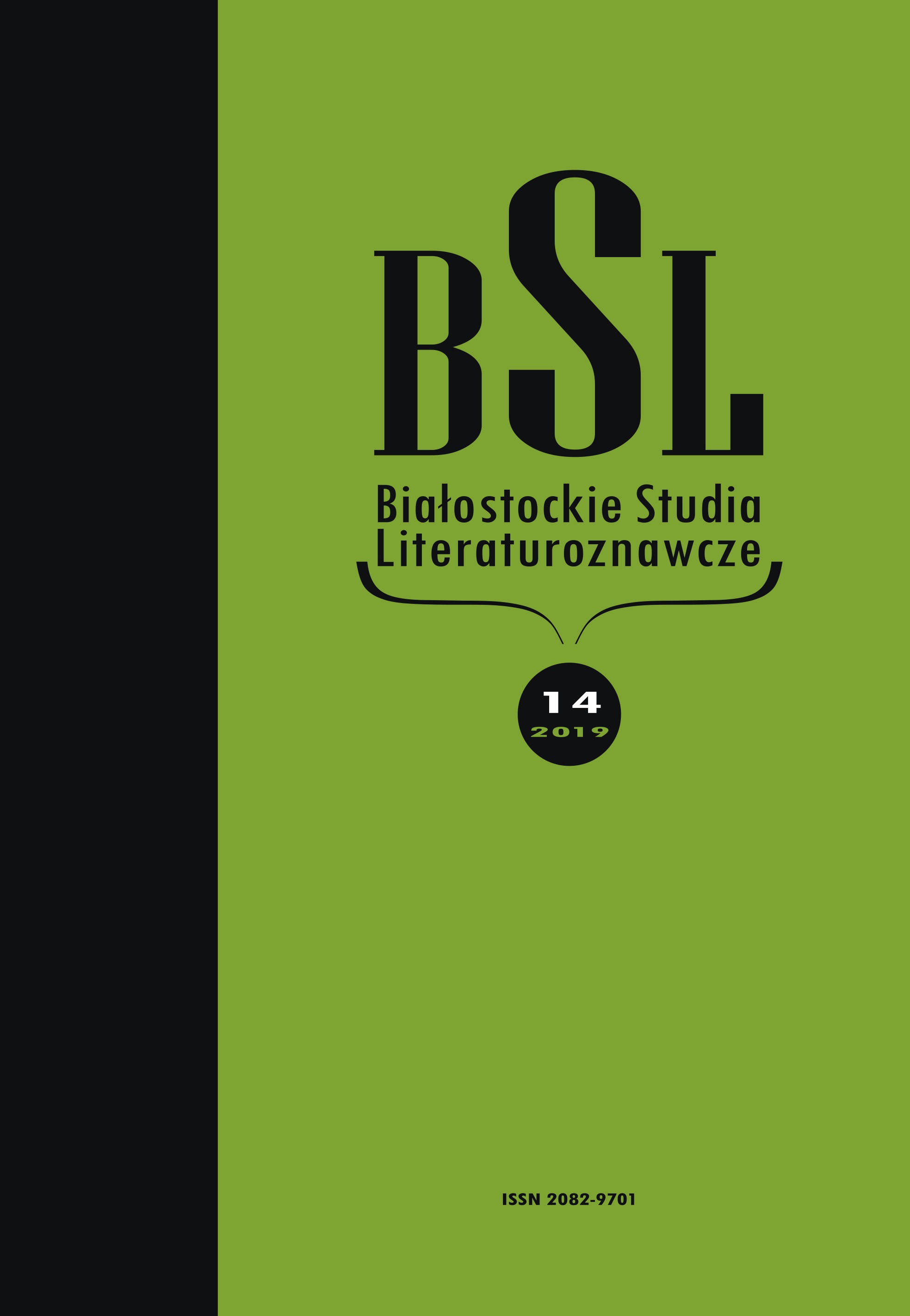Elegia starozakonna – o szmoncesie w PRL-u
“Jewish Elegy”: On Shmontses in the Polish People’s Republic
Author(s): Katarzyna SmyczekSubject(s): Theatre, Dance, Performing Arts, Language and Literature Studies, Studies of Literature
Published by: Wydawnictwo Uniwersytetu w Białymstoku
Keywords: shmontses; cabaret; 1968 Polish political crisis; cabaret “Dudek”; Television Theatre
Summary/Abstract: The article addresses the topic of shmontses in Poland after 1945, focusing on historical and political circumstances that significantly influenced the perception of this performative and literary genre. Shmontses – a form extremely popular in the interwar cabaret – drew patterns from Jewish humour. As the relevant cultural context was gradually vanishing, the genre became less frequent on stage. Despite that the pre-war works by Konrad Tom, Ludwik Lawiński and Julian Tuwim were included in the repertoire of cabaret “Dudek”. A sketch referring to the Jewish themes appeared in the show of Television Theatre. It was entitled Cabaret Warietano, czyli XI Muza Juliana Tuwima (Cabaret Warietano, or 11th Muse of Julian Tuwim) and directed by Jerzy Dobrowolski. The author of the article also discusses the shmontses written by the young post-war writers – Wojciech Młynarski and Ryszard Marek (Ryszard Wierzbowski and Marek Groński).
Journal: Białostockie Studia Literaturoznawcze
- Issue Year: 2019
- Issue No: 14
- Page Range: 129-142
- Page Count: 14
- Language: Polish

